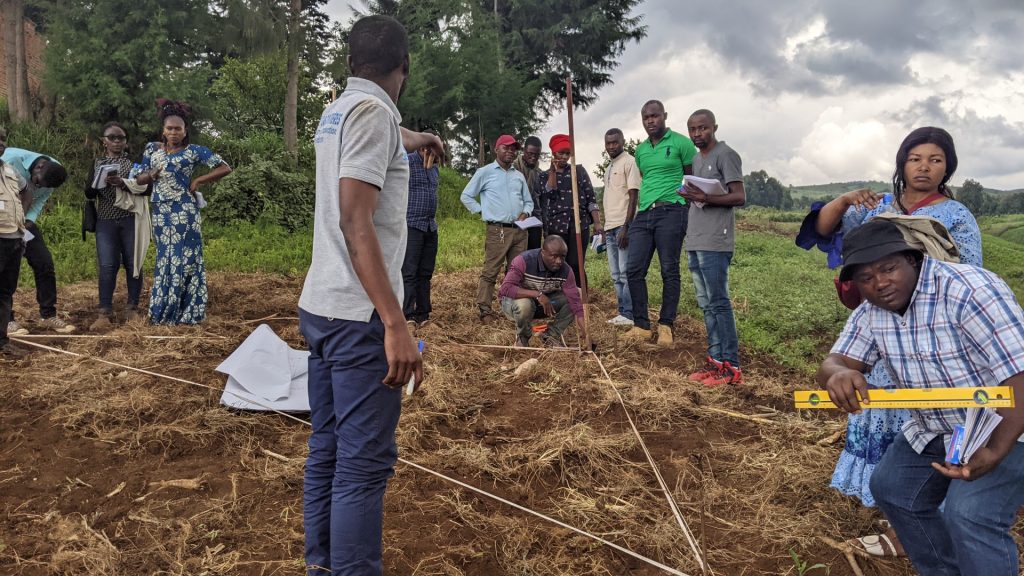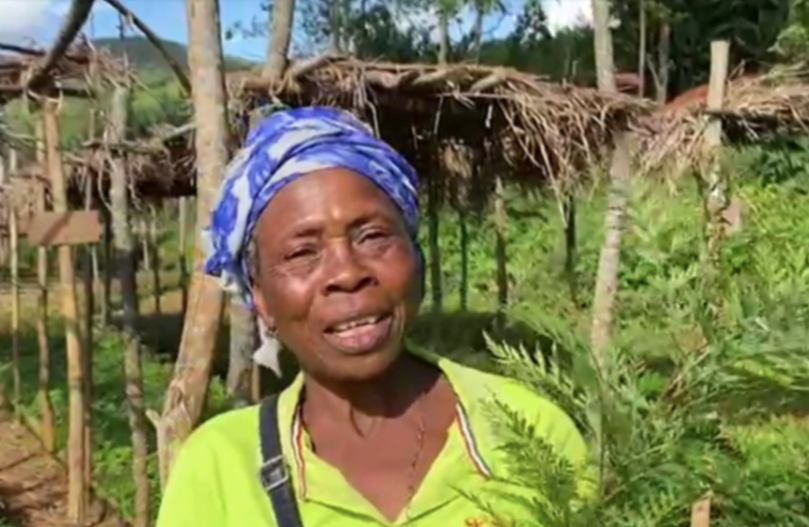Dans la République Démocratique du Congo (RDC), à l'Initiative de Restauration (TRI) adressée grave dégradation de la forêt dans le territoire de Walungu au Sud-Kivu Province. Cette région, une fois grouillant avec une riche couverture forestière et de la biodiversité, a été dégradée en raison de pratiques agricoles non durables et de la surexploitation des ressources en bois. En outre, ces forêts constituent l'un des derniers habitats pour les en voie de disparition Gorille des Plaines Orientales. TRI du projet s'est concentré sur l'agroforesterie, reboisement, contrôle de l'érosion et de restaurer les paysages dégradés, s'appuyant fortement sur l'orientation de connaissances indigènes pour éclairer les décisions et les stratégies de restauration.
De la restauration et de l'Élévation
TRI RDC réalisé des progrès notables dans la restauration et le reboisement tout au long de son cours, portant 2,163 hectares de terres en vertu de la restauration et de 3,145 hectares de terres en vertu de l'amélioration de la gestion, par la suite de la restauration de la valeur des services écosystémiques essentiels, y compris la stabilisation des sols, la rétention d'eau, et l'augmentation de la biodiversité. Le projet a travaillé en étroite collaboration avec les communautés autochtones et locales, l'engagement a été au centre du projet de la prospérité. Un total de 57,086 bénéficiaires directs ont été touchés par le TRI de la RDC, à travers le renforcement des compétences, la diversification des activités génératrices de revenus, et de jouer un rôle essentiel dans le processus de restauration. Le minutieux processus de sélection adapté à la restauration des espèces a été guidée par les connaissances traditionnelles de courtoisie de certains habitants.
L'une des pratiques innovantes de TRI de projet a travaillé à travers le local Dimitra Clubs pour augmenter leur portée dans les communautés . Ces clubs de sensibiliser et de mobiliser les communautés et les autorités locales sur les questions environnementales et la nécessité de mettre en œuvre la restauration. Dimitra Clubs de contribuer à l'éveil de la dynamique communautaire autour de la restauration et de renforcer inclusive de l'engagement communautaire, l'action collective, et de l'égalité des sexes.
Le sud-Kivu est l'une des plus densément peuplée des provinces, avec 80% de sa population vivant en dessous du seuil de pauvreté. La communauté d'habilitation a été essentiel dans la conduite des efforts de restauration et de réalisation notable de développement durable. Ainsi, la diversification des sources de revenus et de fournir des possibilités de moyens de subsistance alternatifs, tels que l'apiculture, a été une réalisation importante. Dans le Lurhala la Chefferie de Ngweshe, le projet a fourni 74 apiculture ménages avec l'équipement approprié et de formation afin d'optimiser la production. Cette initiative a amélioré la résilience des petits producteurs et promu les activités économiques durables afin de réduire la pression sur les ressources naturelles.
S'Adapter En Conséquence
Le projet s'est focalisé sur le renforcement des capacités et le développement de mécanismes de financement durables. Ce programme inclut la formation des membres de la communauté sur le contrôle de l'érosion des techniques et des pratiques agroforestières, en augmentant leur capacité à gérer durablement les ressources naturelles. Une critique de la réalisation du TRI du projet en RDC a été sa contribution à l'élaboration des politiques. Le projet a facilité la création de la Stratégie Provinciale pour la Restauration des Forêts et des Paysages dans le Sud-Kivu, décrivant les priorités et les actions pour FLR et de gestion durable des terres. Cette stratégie représente une étape importante vers l'avant comme le premier provincial de-CHAUSSÉE de la stratégie de la RDC.
Le Potentiel de Partage des Connaissances dans la Restauration
TRI RDC servi comme un témoignage de l'importance du partage des connaissances dans le cadre de l'exécution efficace et durable de la restauration du paysage. Plus précisément, l'importance de l'embrassant et en utilisant des autochtones ou des connaissances traditionnelles. Les habitants de la région du Sud-Kivu a catalysé le succès du TRI du projet à travers des conseils fondamentaux et les réponses à des questions que personne n'est entièrement équipé pour répondre. Aller de l'avant, le Sud-Kivu et de la RDC sont à la hausse, dans une direction à la fois écologique et de développement économique.

